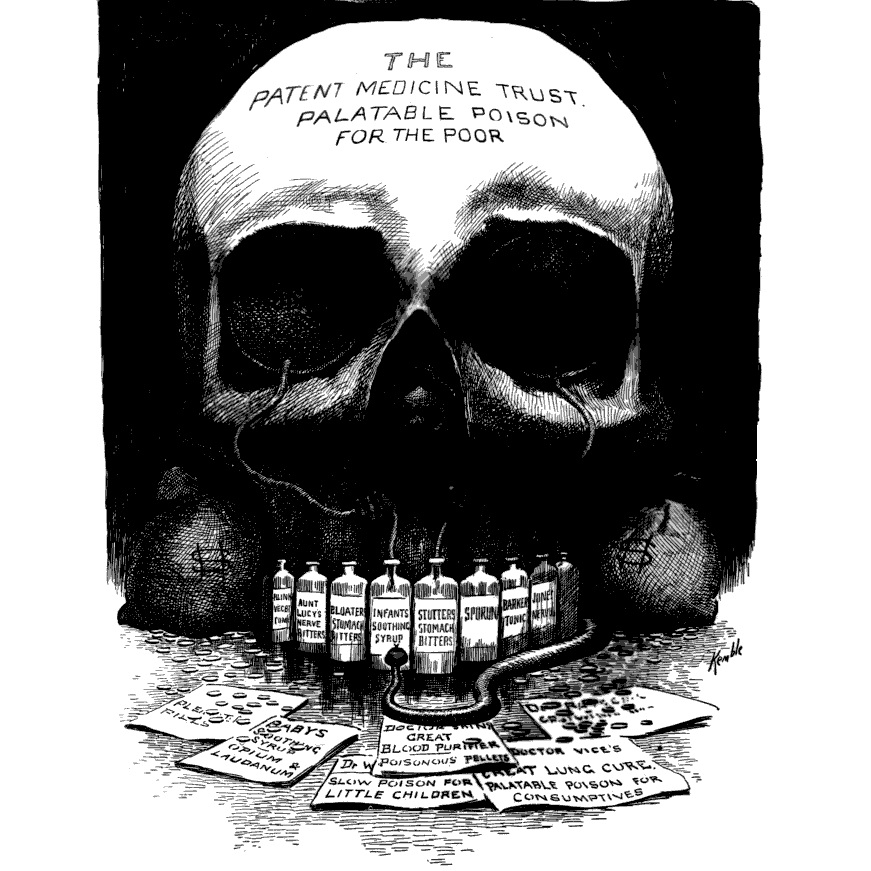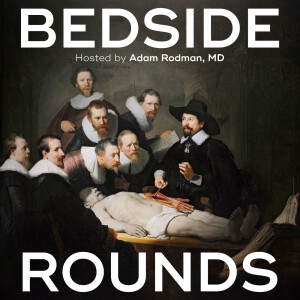
The United States is in the midst of an epidemic of addiction and overdose deaths due to opiate painkillers. Its causes are varied, but there’s no question that physicians share a large part of the blame. Little discussed is that this is actually the second time this has happened. Almost a century ago, a remarkably similar epidemic struck the country. In this episode, called “The First Opiate Epidemic,” I discuss what happened, the parallels to today, and the lessons we can learn from our forebearers. Learn about all this and a new #AdamAnswers in this month’s Bedside Rounds, a tiny podcast about fascinating stories in clinical medicine!
Sources:
Courtwright DT. Dark Paradise: A History of Opiate Addiction in America. Harvard University Press, 2001. Meldrum ML, “The ongoing opiod prescription epidemic: historical context,” Am J Public Health. 2016 August; 106(8): 1365–1366. Courtwright DT, “Preventing and treating narcotic addiction -- a century of federal drug control,” N Engl J Med 2015; 373:2095-2097. Adams JFA, “Substitutes for opium in chronic diseases,” Boston Med Surg J 1889; 121:351-356. Macht DI, “The history of opium and some of its preparations and alkaloids,” JAMA. 1915;LXIV(6):477-481. Hamilton GR and Baskett TF, “In the arms of Morpheus: the development of morphine for postoperative pain relief,” Can J Anesth. 2000;47:4, 367-374. Weiner JP, “A shortage of physicians or a surplus of assumptions?” Health Aff January 2002 vol. 21 no. 1 160-162. Gudbranson BA et al, Reassessing the Data on Whether a Physician Shortage Exists. JAMA. 2017;317(19):1945-1946. Kirch DG and Petelle K, Addressing the Physician Shortage: The Peril of Ignoring Demography. JAMA. 2017;317(19):1947-1948.
More Episodes
25 - Salt Water
 2017-08-01
2017-08-01
 2
2
 2017-08-01
2017-08-01
 2
2
24 - W56.22xA (The Making of A Disease)
 2017-06-22
2017-06-22
 2017-06-22
2017-06-22
23 - Bone Portraits
 2017-05-31
2017-05-31
 8
8
 2017-05-31
2017-05-31
 8
8
22 - The Assassination
 2017-04-24
2017-04-24
 7
7
 2017-04-24
2017-04-24
 7
7
21 - Renegades
 2017-03-25
2017-03-25
 2017-03-25
2017-03-25
20 - Buried Alive
 2017-02-21
2017-02-21
 2017-02-21
2017-02-21
19 - Of Madness and Moons
 2017-01-19
2017-01-19
 3
3
 2017-01-19
2017-01-19
 3
3
18 - Dr. Livingstone, I presume?
 2016-12-30
2016-12-30
 2016-12-30
2016-12-30
17 - The Iceman
 2016-11-25
2016-11-25
 2016-11-25
2016-11-25
16 - Phineas
 2016-10-26
2016-10-26
 2016-10-26
2016-10-26
15 - Innumeracy
 2016-09-04
2016-09-04
 2016-09-04
2016-09-04
14 - The First Trial
 2016-01-23
2016-01-23
 2016-01-23
2016-01-23
13 - The Oath
 2015-06-30
2015-06-30
 2
2
 2015-06-30
2015-06-30
 2
2
12 - P.I.M.P.
 2015-03-31
2015-03-31
 2015-03-31
2015-03-31
11 - Frank's Sign Redux
 2015-03-12
2015-03-12
 2015-03-12
2015-03-12
10 - Car Talk
 2015-01-28
2015-01-28
 2015-01-28
2015-01-28
9 - Laennec's Cylinder
 2015-01-18
2015-01-18
 2015-01-18
2015-01-18
8 - I will harm
 2014-12-29
2014-12-29
 2014-12-29
2014-12-29
7 - The Medicine of the Empire Strikes Back
 2014-09-26
2014-09-26
 2014-09-26
2014-09-26
012345678910111213141516171819
Create your
podcast in
minutes
- Full-featured podcast site
- Unlimited storage and bandwidth
- Comprehensive podcast stats
- Distribute to Apple Podcasts, Spotify, and more
- Make money with your podcast
It is Free
- Privacy Policy
- Cookie Policy
- Terms of Use
- Consent Preferences
- Copyright © 2015-2024 Podbean.com






